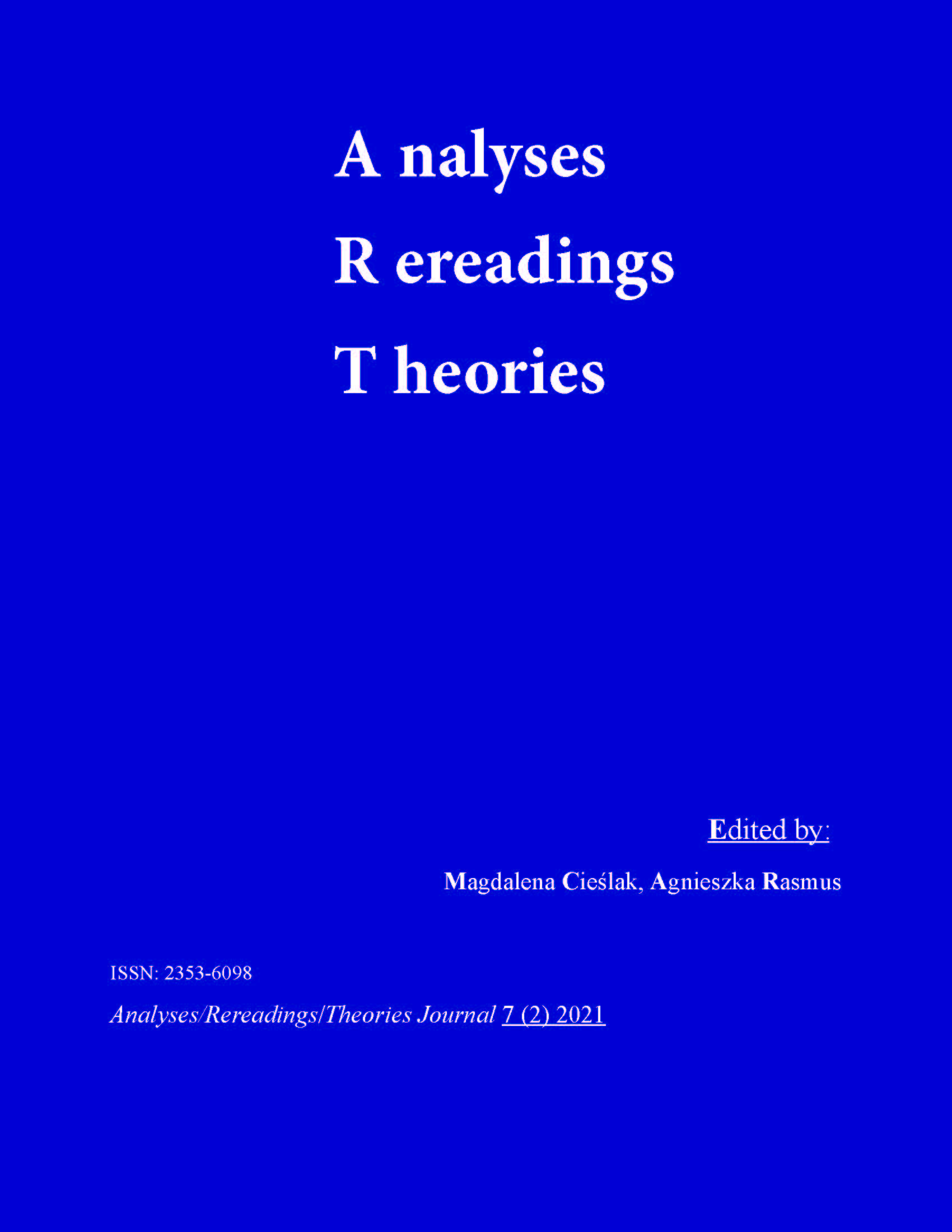From a Botched Body without Organs to a Plastic Brain. A Reading of P.K. Dick’s "A Scanner Darkly"
DOI:
https://doi.org/10.18778/2353-6098.7.14Keywords:
Philip K. Dick, A Scanner Darkly, twentieth century science fiction, posthumanism, body without organs, brain plasticityAbstract
This article analyzes the 1977 science-fiction novel A Scanner Darkly by Philip K. Dick, and focuses on the split personalities of the main character: Bob/Fred/Bruce. The reading is supplemented by the use of the concepts of Line of Flight and Body without Organs introduced by Gilles Deleuze and Félix Guattari in Capitalism and Schizophrenia as well as Catherine Malabou’s concept of brain plasticity. The article argues that the progressing deterioration of the protagonist’s mental state caused by drug abuse and social environment may be seen as a representation of a “botched BwO” – a body that has lost its productive potential and cannot be reintegrated into a stable territory. At the same time, I contend that the final chapter of the novel depicts a reparative transformation in which, thanks to brain plasticity, he is integrated into an autopoietic system of his environment.
References
Bogen, Joseph E. “The Other Side of the Brain: An Appositional Mind.” Bulletin of the Los Angeles Neurological Society 34 (1968): 135–162.
Google Scholar
Deleuze, Gilles and Guattari, Félix. Anti-oedipus: Capitalism and Schizophrenia. London: Bloomsbury Academic, 2019.
Google Scholar
Deleuze, Gilles, Guattari, Félix, and Massumi, Brian. A Thousand Plateaus: Capitalism and Schizophrenia. London: Bloomsbury, 2019.
Google Scholar
Dick, Philip K. A Scanner Darkly. Boston: Houghton Mifflin Harcourt, 2011.
Google Scholar
Hayles, Katherine N. How We Became Posthuman: Virtual Bodies in Cybernetics, Literature and Informatics. Chicago: University of Chicago Press, 2010.
Google Scholar
Malabou, Catherine. The New Wounded: From Neurosis to Brain Damage. New York: Fordham University Press, 2012.
Google Scholar
Malabou, Catherine. What Should We Do with Our Brain? New York: Fordham University Press, 2008.
Google Scholar
Murakami Wood, D. “Can a Scanner See the Soul? Philip K. Dick Against the Surveillance Society”. Review of International American Studies 3:3–4 (2009): 46–59.
Google Scholar
Nayar, Pramod K., Posthumanism. Cambridge: Polity Press, 2017.
Google Scholar
Parr, Adrian. The Deleuze Dictionary. Edinburgh: Edinburgh University Press, 2005.
Google Scholar
Rhee, Jennifer. “Surveillance and Counter-Surveillance in Philip K. Dick’s A Scanner Darkly.” Mosaic: an Interdisciplinary Critical Journal 50:2 (2017): 133–147.
Google Scholar
DOI: https://doi.org/10.1353/mos.2017.a663694
Roden, David. Posthuman Life: Philosophy at the Edge of the Human. London: Routledge, 2015.
Google Scholar
DOI: https://doi.org/10.4324/9781315744506
Smith, Daniel. “What is the Body without Organs? Machine and Organism in Deleuze and Guattari.” Continental Philosophy Review 51 (2018): 95–110. https://doi.org/10.1007/s11007-016-9406-0
Google Scholar
DOI: https://doi.org/10.1007/s11007-016-9406-0
Wolfe, Cary. What Is Posthumanism? Minneapolis: University of Minnesota Press, 2010.
Google Scholar
Young, Eugene B. The Deleuze and Guattari Dictionary. London: Bloomsbury Academic, 2013.
Google Scholar
Downloads
Published
Versions
- 2023-11-29 (2)
- 2023-11-29 (1)
How to Cite
Issue
Section
License

This work is licensed under a Creative Commons Attribution-NonCommercial-NoDerivatives 4.0 International License.









